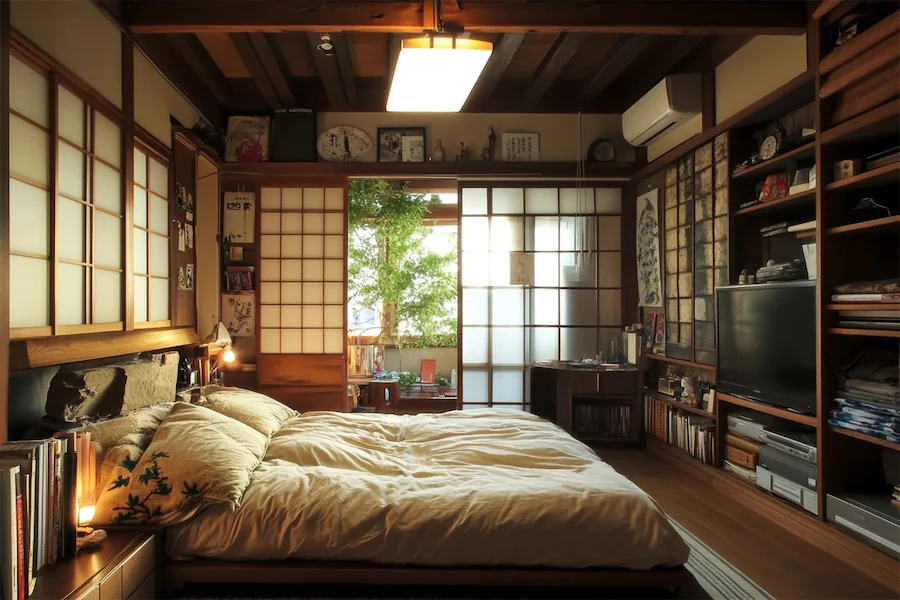Designing an earth-tone bedroom creates a serene and inviting atmosphere by incorporating colors and materials inspired by nature.
History and Origins of Earth-Tone Bedrooms
Earth-tone palettes have been integral to interior design for centuries, reflecting the natural world and promoting tranquility. These hues gained prominence in mid-20th-century design movements, emphasizing harmony and simplicity.
Key Features of Earth-Tone Bedrooms
- Natural Color Palette: Utilizing shades of beige, brown, green, and muted blues mirrors the outdoors, fostering a calming environment.
- Organic Materials: Incorporating wood, stone, and natural fibers enhances the earthy aesthetic and adds texture to the space.
- Layered Textures: Combining various textiles, such as linen bedding, wool throws, and jute rugs, adds depth and comfort.
- Nature-Inspired Decor: Including botanical prints, indoor plants, and landscape artwork reinforces the connection to nature.
Applications of Earth-Tone Bedrooms
- Modern Designs: Incorporating sleek furniture with natural finishes and minimalist decor creates a contemporary yet warm space.
- Rustic Interiors: Utilizing reclaimed wood furniture, woven textiles, and earthy color schemes evokes a cozy, cabin-like atmosphere.
- Bohemian Styles: Mixing eclectic patterns, natural materials, and a warm color palette achieves a relaxed, boho-chic bedroom.
Considerations When Designing Earth-Tone Bedrooms
- Balance: Ensure a harmonious mix of colors and textures to prevent the space from feeling monotonous.
- Lighting: Incorporate warm lighting to enhance the earthy ambiance and highlight natural materials.
- Personal Touches: Add decor that reflects personal style while maintaining the natural theme, such as handcrafted items or travel souvenirs.
Conclusion
An earth-tone bedroom offers a timeless and tranquil retreat by embracing colors and materials inspired by nature. Thoughtful integration of natural hues, textures, and decor can transform the bedroom into a harmonious sanctuary.
